
Adrian Michael Smith is an American politician serving as the U.S. representative for Nebraska's 3rd congressional district since 2007. A member of the Republican Party, he represented the 48th district in the Nebraska Legislature from 1999 to 2007. Smith is the dean of Nebraska's congressional delegation.
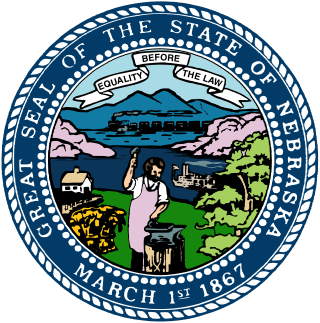
The 1998 Nebraska gubernatorial election was held on November 3, 1998. Term limits prevented incumbent Governor Ben Nelson, a Democrat, from seeking a third term in office. Republican nominee Mike Johanns, Mayor of Lincoln, defeated Democratic nominee, attorney Bill Hoppner. As of 2024, this was the last gubernatorial election in Nebraska in which the margin of victory was within single digits. Johanns later served Nebraska in the United States Senate with Nelson from 2009 to 2013.
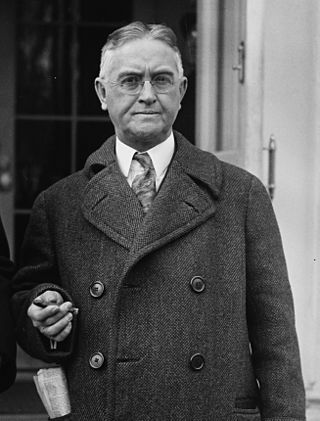
The 1924 Nebraska gubernatorial election was held on November 4, 1924, and featured former state Senator Adam McMullen, a Republican, defeating Democratic nominee, former state Representative John N. Norton, and Progressive nominee, Omaha City Commissioner Dan B. Butler.

The 2020 United States House of Representatives elections in Nebraska was held on November 3, 2020, to elect the three U.S. representatives from the state of Nebraska, one from each of the state's three congressional districts. The elections coincided with the 2020 U.S. presidential election, as well as other elections to the House of Representatives, elections to the United States Senate and various state and local elections.

The 2022 Nebraska gubernatorial election took place on November 8, 2022, to elect the next governor of Nebraska. Incumbent Republican governor Pete Ricketts was term-limited and unable to seek a third term. In the general election, Republican Jim Pillen won the gubernatorial election by a 23-point margin.

The 2022 Nebraska State Legislature elections took place as part of the biennial United States elections. Nebraska voters elected state senators in the 24 even-numbered seats of the 49 legislative districts in the Nebraska Unicameral as well as in a special election for the 31st District. State senators serve four-year terms in the unicameral Nebraska Legislature.

The 1914 Nebraska gubernatorial election was held on November 3, 1914.

The 1910 Nebraska gubernatorial election was held on November 8, 1910.
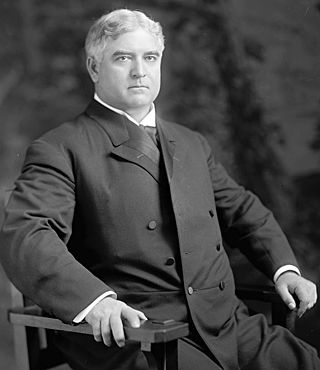
The 1908 Nebraska gubernatorial election was held on November 3, 1908.

The 2024 United States Senate special election in Nebraska was held on November 5, 2024, to elect the Class 2 member of the United States Senate from Nebraska, to complete the term of Ben Sasse, who resigned on January 8, 2023, to become the president of the University of Florida. On January 12, 2023, Governor Jim Pillen appointed Republican former governor Pete Ricketts to fill the seat until the election. Ricketts won the special election, defeating Democratic nominee Preston Love Jr. with about 63% of the vote. This was the first time since 1954 where both of Nebraska's U.S. Senate seats were concurrently up for election. Primary elections took place on May 14, 2024.

Isaac Skinner Hascall was a lawyer who served in the Nebraska State Senate from 1867 to 1869 and again from 1871 to 1873, serving as President of the Senate from 1871 to 1873. Hascall is known for declaring himself Acting Governor of Nebraska in February 1872 by virtue of his position as President of the Senate in order to call a special session of the Nebraska Legislature while current Acting Governor William H. James was traveling out of the state.
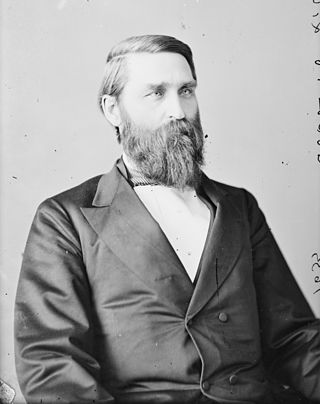
The 1892 Nebraska gubernatorial election was held on November 8, 1892. Incumbent Democratic Governor James E. Boyd did not seek re-election. Lorenzo Crounse, the Republican nominee, defeated both the Democratic nominee, J. Sterling Morton, and the Populist nominee, Charles Van Wyck.

The 1880 Nebraska gubernatorial election was held on November 2, 1880, in order to elect the Governor of Nebraska. Incumbent Republican Governor of Nebraska Albinus Nance defeated Democratic nominee Thomas Tipton, who had formerly served as a Republican US Senator from Nebraska.

The 1874 Nebraska gubernatorial election was held on October 13, 1874. It was the last gubernatorial election held under the Nebraska Constitution of 1866. Incumbent Governor of Nebraska Robert Wilkinson Furnas did not seek reelection to a second term. The election featured Republican nominee Silas Garber, a member of the Nebraska House of Representatives, defeating Democratic nominee Albert Tuxbury, mayor of Nebraska City, as well as Independent nominee Jonathan F. Gardner and Prohibition Party nominee Jarvis S. Church.

The 1872 Nebraska gubernatorial election was held on October 8, 1872. Three-term incumbent Governor of Nebraska, David Butler was impeached and removed from office on June 2, 1871. Because Nebraska's Constitution at the time did not include the office of lieutenant governor, Butler was replaced by Nebraska Secretary of State William H. James as acting governor, filling out the remainder of Butler's term. In 1872, James decided not to seek election to the governorship. The election of 1872 thus featured Republican nominee Robert Wilkinson Furnas, a member of the University of Nebraska Board of regents since 1869, defeating Democratic nominee Henry C. Lett, a lawyer from Brownville, Nebraska.

The 1870 Nebraska gubernatorial election was held on October 11, 1870. Two-term incumbent Governor of Nebraska David Butler, the Republican nominee, was seeking a third term as governor. He was opposed by Democratic nominee John H. Croxton, a lawyer from Nebraska City.
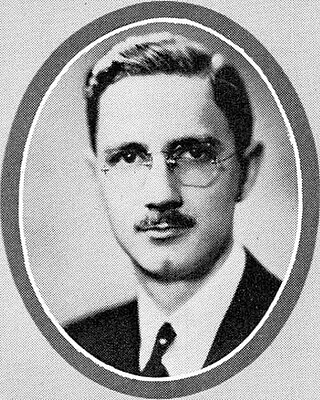
The 1938 Nebraska lieutenant gubernatorial elections were both held on November 8, 1938. Incumbent Nebraska Lieutenant Governor Walter H. Jurgensen was convicted of a felony in March 1938 and barred from running for a fourth term as lieutenant governor in June, 1938, leaving the 1938 lieutenant gubernatorial race wide open. The vacancy caused by his removal from office brought about two elections for lieutenant governor in 1938: the regular election which always happened biennially and a special election to fill the vacancy.

The 1930 Nebraska lieutenant gubernatorial election was held on November 8, 1932, and featured Theodore W. Metcalfe, the Republican nominee, defeating Democratic nominee James C. Agee. The incumbent lieutenant governor George A. Williams decided not to seek reelection.

The 1910 Nebraska lieutenant gubernatorial election was held on November 8, 1910, and featured incumbent Nebraska Lieutenant Governor Melville R. Hopewell, a Republican, defeating Democratic nominee Ralph A. Clark as well as Socialist Party nominee George L. Slutter and Prohibition Party nominee Samuel Lichty.
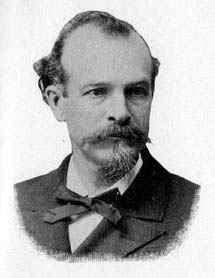
The 1900 Nebraska lieutenant gubernatorial election was held on November 6, 1900, and featured Republican nominee Ezra P. Savage defeating incumbent Nebraska Lieutenant Governor Edward A. Gilbert, the Populist and Democratic fusion nominee. Other candidates who received two percent of the vote or less included Prohibition nominee Charles R. Lawson, Midroad Populist nominee Herman G. Reiter, and Social Democratic nominee David McKibben.















